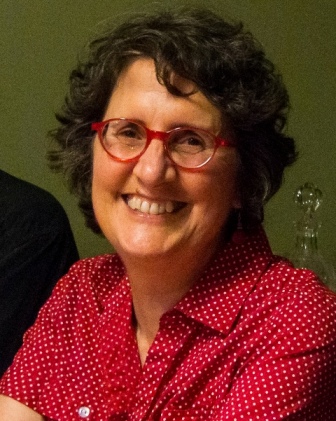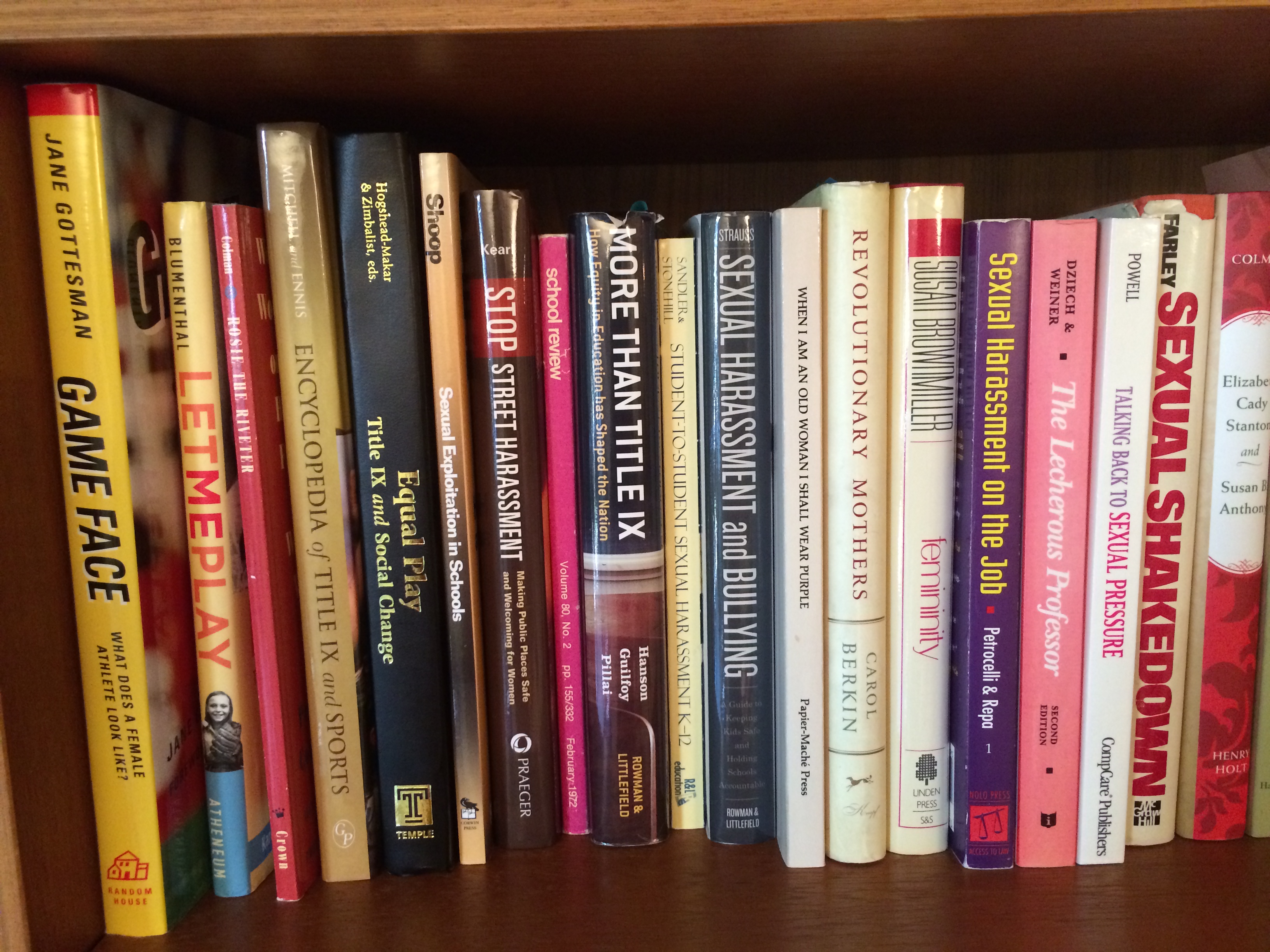Bayh fathered Title IX, inspired by Marvella
Former Senator Birch Bayh, the father of Title IX, died on March 14, 2019, marking the end of an era. His life shows us how people can break free from prejudices of their generation yet simultaneously remain trapped by them. It’s a humbling truth we all share, like it or not.

Bayh is the last of the major players in Title IX’s creation to leave this earth. Rep. Edith Green, the mother and primary author of Title IX, died in 1987 without even a mention of Title IX in her obituary (though, to be fair, Title IX was decimated at the time and wouldn’t return in full force until a year later with passage of the Civil Rights Restoration Act). The godmother and godfather of Title IX — Bernice Sandler and Vincent Macaluso — left us in January 2019 and November 2016, respectively.
Bayh became one of the strongest Congressional allies for women’s rights during his Senate career from 1963 to 1981. He not only authored the Senate’s version of Title IX but championed the Equal Rights Amendment. Both passed in 1972, though the ERA has yet to be ratified by the states. Bayh helped beat back a slew of legislative attacks on Title IX in the 1970s. Women needed men like Bayh who could open their minds to the reality of sex discrimination in order to outlaw it. When Rep. Edith Green introduced the first version of what later became Title IX, only 1 of 100 Senators was a woman (and 10 of 435 Representatives in the House). These Congressional women and the wider women’s movement of the 1960s and 1970s pushed for change. Some men responded.

For Bayh’s feminism and his career in politics we can thank his brilliant first wife, Marvella. In another era, she might have been Senator instead of Birch, or even President. But as she told one interviewer, “I live, totally, through my husband.” What she didn’t say is that she felt stifled by Birch even though they loved each other madly. She acceded to the limits that he and society set on her life but chafed against them, she admitted in her 1979 autobiography, published six months after her death from breast cancer.
Growing up in Enid, Okla., Marvella Hern excelled in everything educational. Class president, honor society member, president of Girls’ Nation in Washington, D.C. But she attended Oklahoma State University because her dream college — the University of Virginia — told her that “women need not apply.” (They wouldn’t change that policy until 1970.) As a college student, Marvella happened to sit next to Birch at a national extemporaneous speech contest (which Marvella won). It was love at first sight for both. They married a year later in 1952 despite one significant and unresolved fight.
Marvella had told Birch that she wanted a career. The idea disgusted him. A woman’s role was in the home. “I agree that my first commitment is to family,” Marvella said. “But I need something else. A purpose. Besides, I don’t want all this training to go to waste.”
“You’ll have me,” Birch said.

She wanted control over her life. It felt like he was trying to control her. But they compromised. After college, they would raise a family, then she could teach. They had a son, Evan. While raising him Marvella urged Bayh, a farmer, to run for the Indiana Legislature. She convinced Birch to go to law school. She suggested he run for the Senate in 1962 and helped coordinate his campaign from their garage.
Throughout Birch’s career Marvella stumped for him, gave hundreds of speeches for him, and hosted countless dinners in their home for political purposes. She researched issues and influenced his policies. For years Marvella urged Birch to do something about sex discrimination in education and to get the Equal Rights Amendment passed. Longing for a job, she felt happiest when she felt part of his team. But friction caught fire when she clashed with his male staff who excluded her except when they needed her for campaign speeches and photo-ops.
In January 1967, as Birch throttled up his campaign for re-election in 1968, President Lyndon Johnson told him he wanted Marvella to be vice-chair of the Democratic National Committee. Marvella went over the moon with happiness. “I wanted that job more than I had ever wanted anything in my life,” she wrote.

Birch turned to his male advisors. The job would cost Birch votes, they said in a meeting at the Bayh’s home. Marvella paced the floor, looked out the window, and cried as they talked. A few days later, Birch told the President that he needed Marvella to help with his campaign. Birch won re-election by a slim margin. But later in life he said it was the worst mistake he ever made.
A few months after turning down the job offer, Marvella suggested to Birch that he look into the problems of being a woman in our society. “He still couldn’t quite understand what I was talking about. But then perhaps I didn’t either. Not yet.” Her experiences and the women’s movement continued to educate her. She dumped statistics and outrage on Birch when she could.

Still, she influenced Birch’s actions. In May 1970 Sen. Bayh began hearings on the Equal Rights Amendment, something Marvella had urged for five years. In December he announced a national child care proposal, deeply researched by Marvella. In 1971 he joined the advisory board of the Women’s Educational Action League. He followed Rep. Green’s lead by introducing a forerunner of Title IX in the Senate, though it was rejected.
But after the 1968 election, Marvella again often felt frozen out by Birch and his staff until he decided to explore a run for President in the 1972 election. “I was needed, all right — like a Barbie-doll who makes speeches; send me out on a campaign for a year, then fold me up and file me in a drawer until the next campaign!”
Between the stress of the presidential run and Marvella being shut out of its meetings, the Bayh’s marriage suffered. For the first time, she considered leaving him. “And I believe he felt the same way,” she wrote.
Everything changed in October 1971 after a breast biopsy found cancer and surgeons removed Marvella’s breast. She faced radiation and chemotherapy. The threat of death helped her fully recognize the anger, pain, and frustration she’d felt from trying to live her life through her husband’s life work. “By living through Birch, I had not only thwarted my own development, but placed a heavy burden on him, as well… How he tolerated my trying to run everything, I will never know.” She vowed to herself that if she survived beyond chemotherapy, she’d pursue her own career and her own contributions to the world.
They both reconnected with their love for each other. Birch called a press conference about his candidacy for president. “Whenever I have had the good fortune to serve in public life, my wife, Marvella, has always been there. But Marvella is not here today” because of the cancer surgery, Bayh said. He wanted to be by her side during the lengthy treatment and recovery. “Therefore I am not a candidate for the presidency.”
Birch went on to complete his most important feminist bills — Title IX and the ERA. Marvella did find her own career, first as a volunteer spokesperson and then a paid consultant for the American Cancer Society. She also became a roving reporter for an NBC affiliate doing feature interviews leading up to the 1976 U.S. Bicentennial. Birch got re-elected in 1974 and tried again for the presidency in 1976 but didn’t catch on. But the tension between the Bayhs was gone. These were some of their happiest years as a couple.

“If the women’s movement had not reached me when it did, I do not know what would have become of me, or of our marriage. It was a great comfort to realize that I was not alone in my frustrations, and of great encouragement to me in my determination to stand on my own feet at last — to be in control of my own life,” Marvella said. She died in April 1979 of recurrent cancer.
If the women’s movement had not reached Marvella when it did, it’s unclear what Birch’s feminist legacy would be. Birch deserves much credit for loving Marvella enough and being open enough to start seeing the world in a new way. And for caring enough about injustice to do something about it. Their stories show that the women’s movement is just that — movement. Change doesn’t stop. In 2016, as more women began speaking publicly about being sexually assaulted, a female journalist tweeted that Birch Bayh had groped her in the 1990s in a car. Bayh didn’t respond to the accusation. Birch and Marvella’s stories show that they were works in progress, as are we all.
Change wasn’t always comfortable for Birch and Marvella. It often was stressful. But it made them better, happier people, and the world a better place. The movement continues.
(All photos are in the public domain, from the Senatorial papers of Birch Bayh at Indiana University via Wikimedia Commons.)






